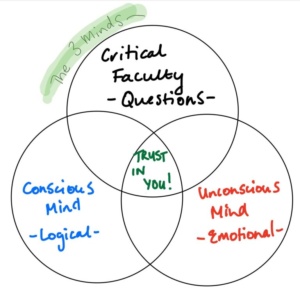Habitual actions are like well worn pathways for the brain. It’s usually easier to walk along a pathway than over untracked wastelands where you can trip and fall so before you start a new course it’s important to ask some questions like:
- Will this take me where I want to go?
- What are the unintended consequences of this course of action?
- Is there a better way?
This is not the same as analysis paralysis, it’s simply setting aside some time to examine your strategy and roadmap before you set out on a course you may regret.
You probably know someone who habitually reaches for M&Ms or other sugary treats to beat the 3pm energy slump and stay productive… And maybe that person has a weight problem as result of that habit. Many smokers gain weight because they swapped the habit of smoking for the habit of snacking or nicotine for drugs – partly because they didn’t think far enough down the track.
Even if you are starting a positive habit or stopping a negative one, it’s worth asking yourself the questions above so that you can strategically develop your plan for substitution.
An equally important question is:
- What is stopping me (or has previously stopped me) from doing this?
If you’ve ever tried or watched sports like acrobatic snowboarding or BMX, you’ll know that heading for an obstacle can be dangerous – the faster you are going and the more momentum there is driving you, the greater the risk of a nasty accident.
This is just as true with personal and business growth as it is in sports.
That’s why it’s important to…
Review the Past
Look back at your previous attempts to change or grow in this area and see what you encountered.
In my business and sales coaching, I’ve noticed that people who don’t take a look at their results and outcomes over the past quarter and year before they plan the next one, frequently keep making the same mistakes.
The same is true when it comes to reaching personal goals like exercise, flexibility, weight, career development, skills improvement and so on… When you look back and determine what derailed your efforts in the past, you can often find different strategies or ways to remove the barriers, so you don’t hit them at speed next time.
Every quarter, Alison set herself a sales goal and every quarter she failed to meet that goal. As a result, she was disappointed in her performance and embarrassed when she had to say to her manager, “My goal was $x and I only managed to close $y.” As a result, she was constantly beating herself up mentally and emotionally. When Alison and I sat down to talk about what was going on, it was immediately clear that she never asked herself the critical questions about why this kept happening, she just kept right on following the ‘Just do it!’ method.
We were able to identify the barriers that had derailed her performance and discover ways to remove or work around them, but that wouldn’t have happened without our review.



